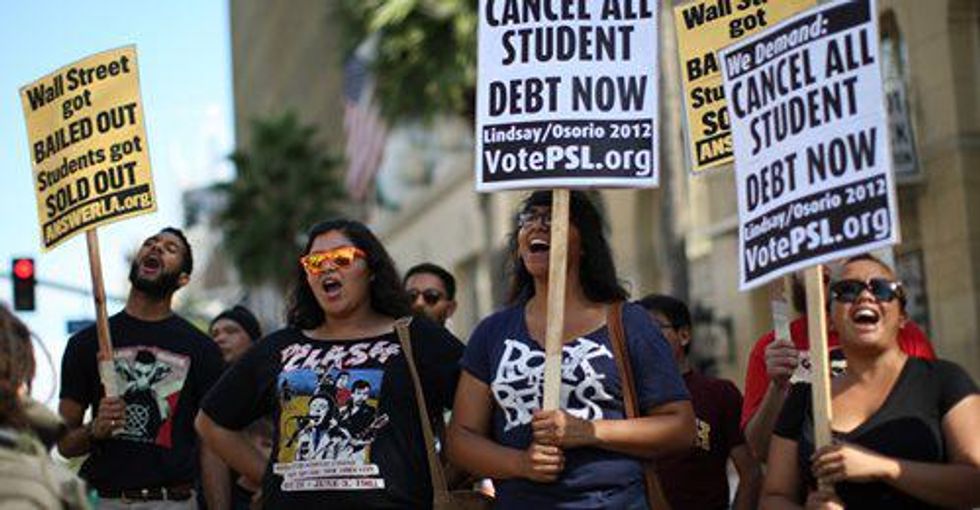According to the Associated Press, President Joseph Biden stated last month that he is considering taking executive action to provide federal student loan debt relief to borrowers nationwide. The proposal has full American support but bitterly divides Congress over its passage.
Indebted students in the United States remain hopeful about the eventual cancellation of their debt. They have received the news with a sigh of relief. The passage of this bill will be a milestone. Above all, it will show that the United States bails out Wall Street, College and university students alike.
Yet, politics gets in the way. Democrats proposed student debt relief; Republicans opposed it. The latter claims that the bill is regressive and poorly targeted; it will not stimulate the economy and create the wrong incentive. They also claim that student loan cancellation is unfair and costly because taxpayers will have to pick up the tab.
Democrats, on the other hand, see student loan cancellation as the right step in the right direction. Experts say that student loan forgiveness will stimulate the economy and save a generation of borrowers from financial ruin. It will also benefit minorities and low-income people. American society will become more productive. For instance, the forgiven loan payments get spent or invested in the market, thereby generating a tremendous boost to the economy.
Despite all the predicted economic benefits that student loan forgiveness could provide, the issue that puzzles the critics of this bill is how to make up for such a colossal debt payment. Well, Democratic Senators Bernie Sanders of Vermont and Elizabeth Warren of Massachusetts have a plan. Sanders says he'll create a "Wall Street speculation tax," taxing stock, bond and derivative trades. In turn, Warren suggests taxing the rich.
Meanwhile, New York Sen. Chuck Schumer said: "more than 43 million Americans are crushed under more than $1.5 trillion in federal student loan debt."
But President Biden has rejected the idea of canceling 50,000 dollars in student debt per individual borrower. His plan supports only 10,000-dollar loan forgiveness. It appears that Biden's proposal conflicts with that of Schumer, Warren and Sanders, the three major sponsors of the bill, who advocate for a debt relief five times larger than the president's.
Students from low-income backgrounds struggle the most even before their loans become a problem. They often miss out on the benefits that their degrees should offer. They, sometimes, find themselves doing menial labor, performing security duties, or flipping burgers at some fast-food restaurant. Unable to make ends meet, they get defaulted on their loans or manage their meager income to make student loan payments, which dive them deeper into poverty and debts.
According to Investopedia, 54 percent of college attendees have taken on debt to pay for their education. Also, the average amount of student loan debt per borrower totals 37,584 dollars, and 6.5 percent of student debt 90 days past due or in default.
Until now, nothing is conclusive about student debt relief. In the meantime, while negotiations are underway, borrowers are waiting full of confidence for its passage. If Congress refuses to legislate on this proposal, President Biden has the authority, if the constitution allows it, to use the executive order to pass this bill.
When it materializes, this human gesture, so long overdue, will put the United States almost on track with Western European countries and even Libya, a North African country, where education is free. Unlike the United States, free education in those countries is a right, not a privilege; student debt forgiveness is unheard of; in short, it is a laughing matter. In passing, the United States is the only industrial country that left its indebted students like orphans in limbo.
Ultimately, Democrats and Republicans need to reconcile their differences for the final passage of the proposed student debt relief. This legislation demands urgent action. Senators and Congressmen, act now in the interest of growth, family and the country. What always remains true is that in politics or life in general, "charity begins at home."





































